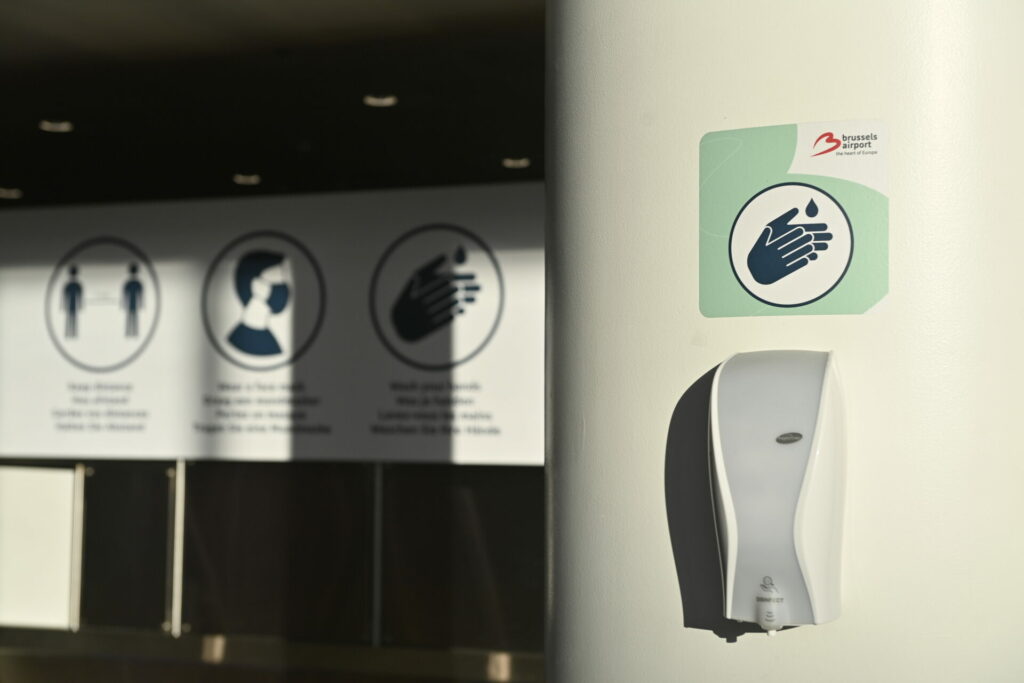The latest Omicron sub-variant of the coronavirus, BA.5, is now dominant in Belgium and its share continues to grow rapidly with rising Covid-19 figures as a result. This is what we know about BA.5.
While the BA.4 sub-variant has remained in the background since it was first discovered in mid-April, BA.5 is now responsible for the majority of new Covid-19 infections in Belgium. Last Friday, BA.5 still accounted for 42.2% of the infections, but the sub-variant has become dominant in the meantime, according to virologist Steven Van Gucht.
"You often see that if a new variant takes over, you get a boost in those figures," Van Gucht told VRT, adding that this is now reflected in the rising Covid-19 figures.
"It is primarily a wave of infections. We have also seen an increase in hospital admissions, but fortunately, it is still fairly quiet in the intensive care unit and the number of deaths is not so high," he added.
More infectious and more severe?
BA.5 is no more or less infectious than the other subtypes of Omicron, but it does succeed very well in circumventing people's accumulated immunity, according to biostatistician Geert Molenberghs (UHasselt / KULeuven).
"There are people who were infected with one of the previous Omicron variants and then became infected again with BA.5 one or two months later," he told Het Nieuwsblad. "But thanks to our accumulated immunity, we do not get ill as severely."
BA.5 also shows some characteristics of the more severe Delta variant: the virus sinks a little deeper into the respiratory tract than the original Omicron variant, said Molenberghs. "But again, thanks to our built-up immunity, we do not get as ill."
What will happen now?
For the time being, the experts do not see the rising figures as a reason to be alarmed. "You can call this a wave, but we do not expect it to be a big one," Van Gucht said, echoing last week's statements of this being "a hill, not a mountain of infections."
He does expect the number of admissions to intensive care to increase, but does not think the healthcare system will run into problems.
On Twitter, virologist Marc Van Ranst made similar comments earlier this week. "You will see that, over the next weeks, more and more people will get Covid, mostly without very severe symptoms, but the number of hospitalisations will increase again."
In countries such as Portugal and South Africa, which have already gone through a similar wave that died down on its own, the hospital admissions also more than doubled in recent weeks, but the impact on the intensive care units was a lot lower.
Van Gucht called that news "reassuring," but also added that it remains important to realise that the virus has not disappeared. "You can still get sick or even severely ill. Risk groups must remain cautious. On public transport, for example, it is still wise to wear an FFP2 mask."
Do previous vaccinations still protect us?
As the different Covid-19 vaccines were initially designed for the first variant of the virus, its efficacy against the Omicron strains is fairly low and declines rapidly, a previous Sciensano study showed.
This is "not surprising," according to experts, who added that a booster shot does increase someone's protection again, especially against hospitalisation.
Related News
- New booster vaccine offers protection against Omicron variant
- New Omicron sub-variant discovered in Belgium
- Covid protection from vaccination drops rapidly, Sciensano study shows
In the meantime, adapted vaccines are in development: the results of several studies have been submitted, and regulatory authorities are expected to give their opinion during the summer, according to vaccinologist Pierre Van Damme (UAntwerpen).
"The vaccines have so far done what they promised, but the enemy is changing tactics and our weapons have remained the same," he said on Flemish radio on Tuesday. "That is what we are feeling now. The vaccines offer slightly less protection against the new variants."
Van Damme said that the advice is still for people to get a first booster dose if they have not already done so. "This will definitely help to prevent infection and certainly hospitalisation," he said. "And at-risk patients and over-80s are well advised to also get their second booster now."

